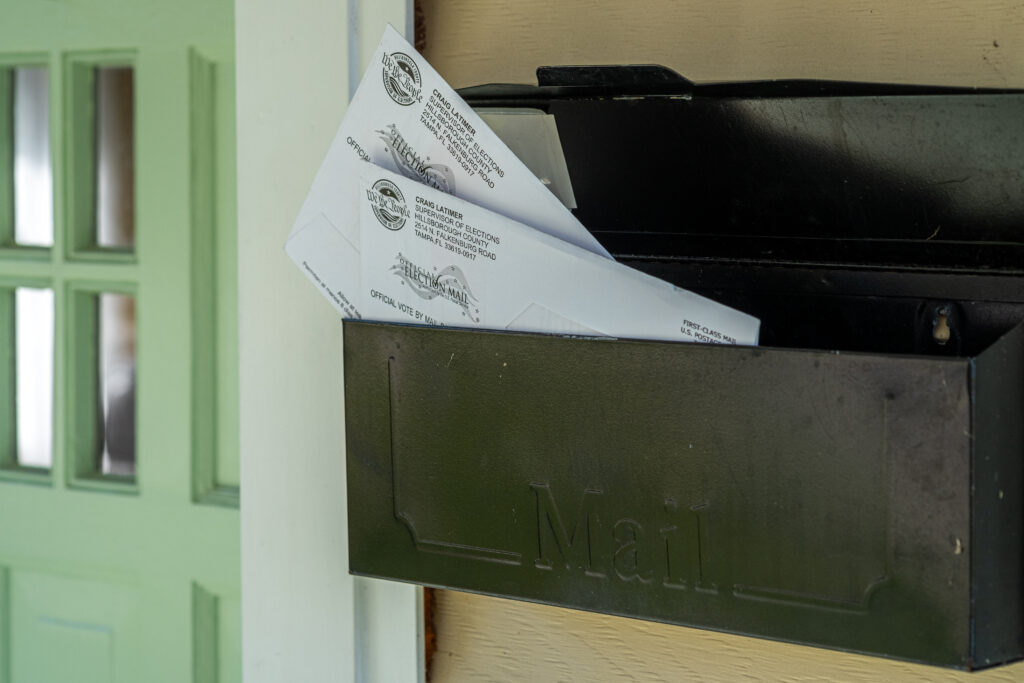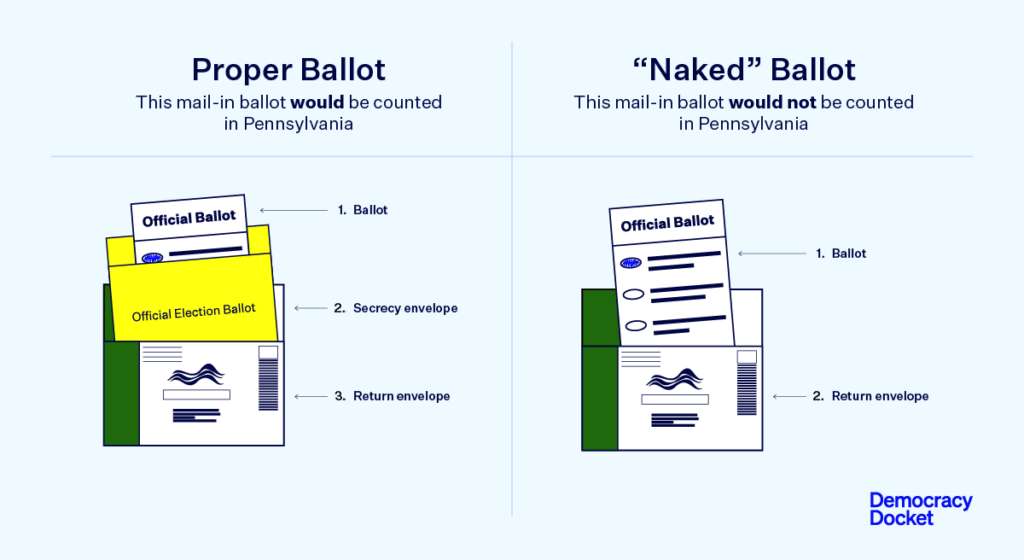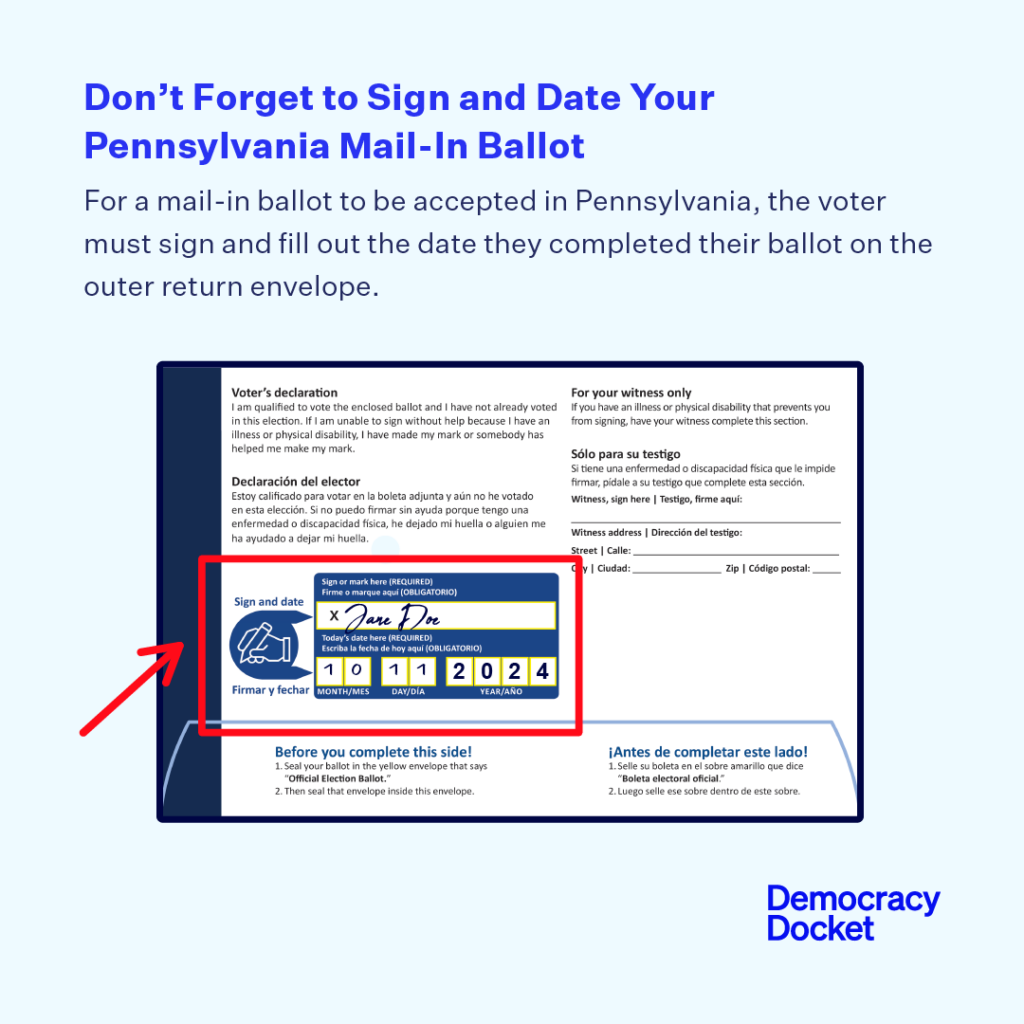How a Simple Voting Mistake Could Turn Into a Heated Legal Battle

Here’s a scenario: Election Day is coming up, but you know you’ll be in an all-day conference, meaning it’s going to be difficult to take the time out of your day to go vote. So you make a plan to vote by mail and request an absentee ballot. You fill it out and make sure to send it to the address on the outer envelope well before the Election Day deadline. But you made a simple error: You forgot to write a date on the ballot’s outer envelope. The ballot made it to the appropriate election precinct before the deadline but, without the date written on the outer envelope, it initially wasn’t counted.
It’s a simple mistake to make, but one that could not only lead to your vote not being counted but a heated, partisan legal battle at the height of a contentious election season. And it’s not the only one.
Voters in certain states may be disenfranchised if there is a simple mistake on their ballot, prompting numerous lawsuits.
Democracy Docket is the only news outlet tracking and reporting on all of these cases — sign up for our free daily and weekly newsletters to get the latest updates sent straight to your inbox.
The 2020 and 2022 election cycles were fraught with a myriad of legal challenges — mostly from Republican candidates, groups and voters — that tried to disqualify many votes because of simple ballot errors. Errors like forgetting to write the date on a mail-in ballot’s outer envelope, forgetting to submit a mail-in ballot with a specific envelope or returning a ballot to the wrong county or precinct. These are all common mistakes voters made that led to intense partisan court battles in recent election cycles — and ones that, depending on the state, county or district, could become the subject of new contentious court battles in the upcoming election.
In the Pennsylvania County of Lehigh in 2022, for example, 252 voters had their ballots rejected because there wasn’t a handwritten date next to the voter declaration signature on the outer ballot envelope. Voters sued to have their ballots counted, arguing that not counting them would violate the Civil Rights Act of 1964, the First and 14th Amendments. The legal saga over those 252 ballots eventually made its way up to the U.S. Supreme Court. The nation’s highest court ultimately allowed the votes to be counted.
In the current election cycle, similar lawsuits are playing out that seek to disenfranchise voters for making simple errors in filling out their ballots. In Pennsylvania, the Republican National Committee (RNC) and the Republican Party of Pennsylvania sued over each county’s board of elections’ authority to develop notice-and-cure procedures for mail-in ballots. Each county has the authority to create their own procedures for what to do if someone returns a mail-in ballot with a mistake — whether it’s the wrong date written, or some other common error — to let them know about that mistake and cure their ballot.
Ultimately, in a win for voters, the Pennsylvania Supreme Court denied the RNC’s petition to amend the rules allowing counties to develop their own notice-and-cure policies.
There’s a number of similar lawsuits that recently played out — or are still playing out — in Pennsylvania, in which Republicans are seeking to disenfranchise voters for making various other simple ballot errors when voting. The Pennsylvania Supreme Court recently dismissed a challenge to state laws and guidance that allow voters to submit absentee ballots to their local board of elections. And the state’s highest court also granted an appeal from the RNC over a lawsuit over Butler County’s procedures for accepting “naked” mail-in ballots — ballots placed directly into the return envelope without a “secrecy” envelope to protect the voter’s identity.

A similar lawsuit is playing out in Washington County, over whether election officials must notify voters of the errors in their mail-in ballots and allow them to vote provisionally at the polls. The Pennsylvania Supreme Court agreed to hear the case on Oct. 4.
There is, of course, a provision in the Civil Rights Act that is supposed to protect voters from making simple mistakes on their ballots while voting. The Materiality Provision is designed to help voters who make such errors — like a missing or unmatched signature, incorrect or missing dates or other omissions on mail-in ballot procedures — from being unnecessarily disenfranchised in the voting process.

That provision is being put to the test in another Pennsylvania lawsuit, filed by a coalition of nonpartisan organizations challenging the state’s plan to not count undated mail-in ballots. The lawsuit stems from a 2022 Pennsylvania Supreme Court ruling that blocked the counting of wrongly dated and undated mail-in ballots. The plaintiffs argue that not counting such ballots violates the Materiality Provision, along with the 14th Amendment’s Equal Protection Clause. They’ve asked the U.S. Supreme Court to chime in on the issue, specifically on their argument that this policy violates the Materiality Clause.
Regardless of the outcome of that case, the fact remains that the best way to prevent your ballot from becoming the subject of a terse legal battle is to ensure you check with your local board of elections to make sure you know the correct way to fill out a ballot — whether you’re casting it in person or by mail.